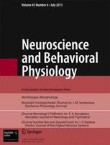|
Anapafseos 5 Agios Nikolaos 72100,Crete,Greece,00302841026182,00306932607174,alsfakia@gmail.com
Blog Archive
- ► 2022 (3010)
- ► 2021 (9899)
-
▼
2020
(4138)
-
▼
November
(1979)
-
▼
Nov 09
(79)
- Flushing and diarrhea, and less frequently, heart ...
- Management of refractory hypoglycaemia in a metast...
- Management of inferior dislocation of a StopLoss J...
- Every loin swelling in an infant is not a renal ma...
- Epiglottic aplasia in an infant with Joubert syndrome
- Lung injury from e-cigarette use: a foul and pesti...
- Secondary sclerosing cholangitis in critically ill...
- Salmonella Typhi: a rare cause of parotid abscess
- Incidentally detected primary corneal squamous neo...
- Hyperplastic thyroid nodule masquerading as parath...
- Optic nerve compression due to allergic fungal rhi...
- Post phacoemulsification wound infection by Nocard...
- Intraductal papillary neoplasm of bile duct: all r...
- Hypertension, cardiovascular disease and cause of ...
- Relationship between dietary magnesium intake and ...
- Implementation of the therapeutic use of hydroxyur...
- Post hoc study to investigate the potential causes...
- Implementation of a comprehensive surveillance sys...
- Social burden of people with the migraine diagnosis
- Study of potentially preventable hospitalisations ...
- The Copenhagen test and treat hepatitis C in a mob...
- Bathing adaptations in the homes of older adults a...
- Effect of particulate matter exposure on patients ...
- Association of body temperature with in-hospital m...
- Endoscopy in the CT Scanner: a Multidisciplinary A...
- Colorectal Cancer
- Immune Cell Infiltration and the Expression of PD-...
- Endoscopy Findings to Identify Early Gastric Cance...
- Mesenchymal stromal cells reprogram monocytes and ...
- Impairments to Oligodendrocyte Clustering in the S...
- Use of a Brain–Computer Interface + Exoskeleton Te...
- Noopept and Piracetam on Depression
- Parvalbumin-Containing Enteric Metasympathetic Neu...
- Interaction of Interoceptive Perception and Emotio...
- Genetic Features of Cerebral Stroke
- Efficacy of High-Frequency Rhythmic Transcranial M...
- Models of Autism and Methods for Assessing Autisti...
- Contributions of Different Spatial Modulations of ...
- Power Exercises as a Risk Factor for Parkinson’s D...
- Thermogenetics as a New Direction in Controlling t...
- Gly-Pro and Adaptive Reactions in Multicomponent S...
- Combination of Stressors in the Critical Periods o...
- Presynaptic LTP in Blockade of NMDA2B Receptors
- Experience in the Use of Optogenetic Approaches to...
- Investigation of Brain Functions Using Genetically...
- Neurogenetic Technologies for Research on the Mech...
- Epigenetic Regulation of the Clinical Signs of Fri...
- Lohxa LLC Issues Voluntary Nationwide Recall of Ch...
- Prognostic Factors After Neoadjuvant Imatinib for ...
- The Myokinetic Control Interface: How Many Magnets...
- Classification of Rhythmic Cortical Activity Elici...
- Multiplayer Interaction Platform With Gaze Trackin...
- Targeted Stimulation of Retinal Ganglion Cells in ...
- Computer Vision to Automatically Assess Infant Neu...
- Interhemispheric Functional Reorganization and its...
- Functional Brain Connectivity Analysis in Intellec...
- Resilient EMG Classification to Enable Reliable Up...
- If you want to be happy, make someone else happy. ...
- The art of medicine consists in amusing the patien...
- Automatic Identification of High-Risk Autism Spect...
- Mibefradil and Flunarizine, Two T-Type Calcium Cha...
- Effects of Rhein on Bile Acid Homeostasis in Rats
- A Complex Stiffness Human Impedance Model With Cus...
- A Computerized Method for Automatic Detection of S...
- EEG-Based Prediction of Successful Memory Formatio...
- Architectural Changes in Superficial and Deep Comp...
- A Unified Analytical Framework With Multiple fNIRS...
- Time-Frequency Maximal Information Coefficient Met...
- Deep Temporal-Spatial Feature Learning for Motor I...
- Muscle Synergy Functions for Estimating Unmeasured...
- Reducing Calibration Efforts in RSVP Tasks With Mu...
- Beta-Range Corticomuscular Coupling Reflects Asymm...
- Evaluation of the Nino® Two-Wheeled Power Mobility...
- FPGA-Based Real-Time Simulation Platform for Large...
- Intrathecal Delivery of BDNF Into the Lumbar Ciste...
- Longitudinal effects of breast feeding on parent-r...
- Foot and ankle injuries
- Combination of 137Cs and 210Pb Radioactive Atmosph...
- Elevated blood urea nitrogen is associated with re...
-
▼
Nov 09
(79)
-
▼
November
(1979)
- ► 2019 (2429)
Αλέξανδρος Γ. Σφακιανάκης
Monday, November 9, 2020
Gly-Pro and Adaptive Reactions in Multicomponent Stress
Subscribe to:
Post Comments (Atom)



No comments:
Post a Comment